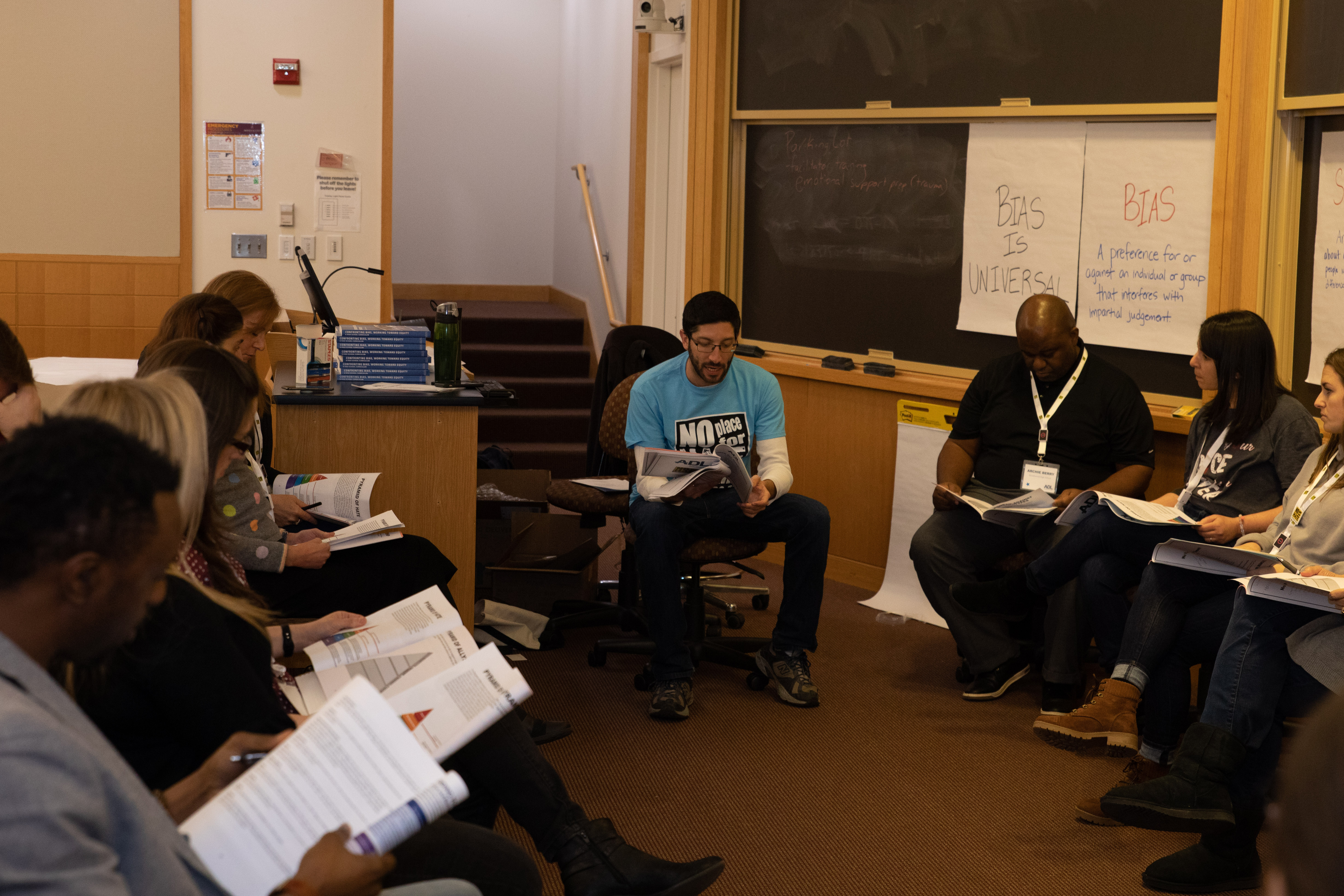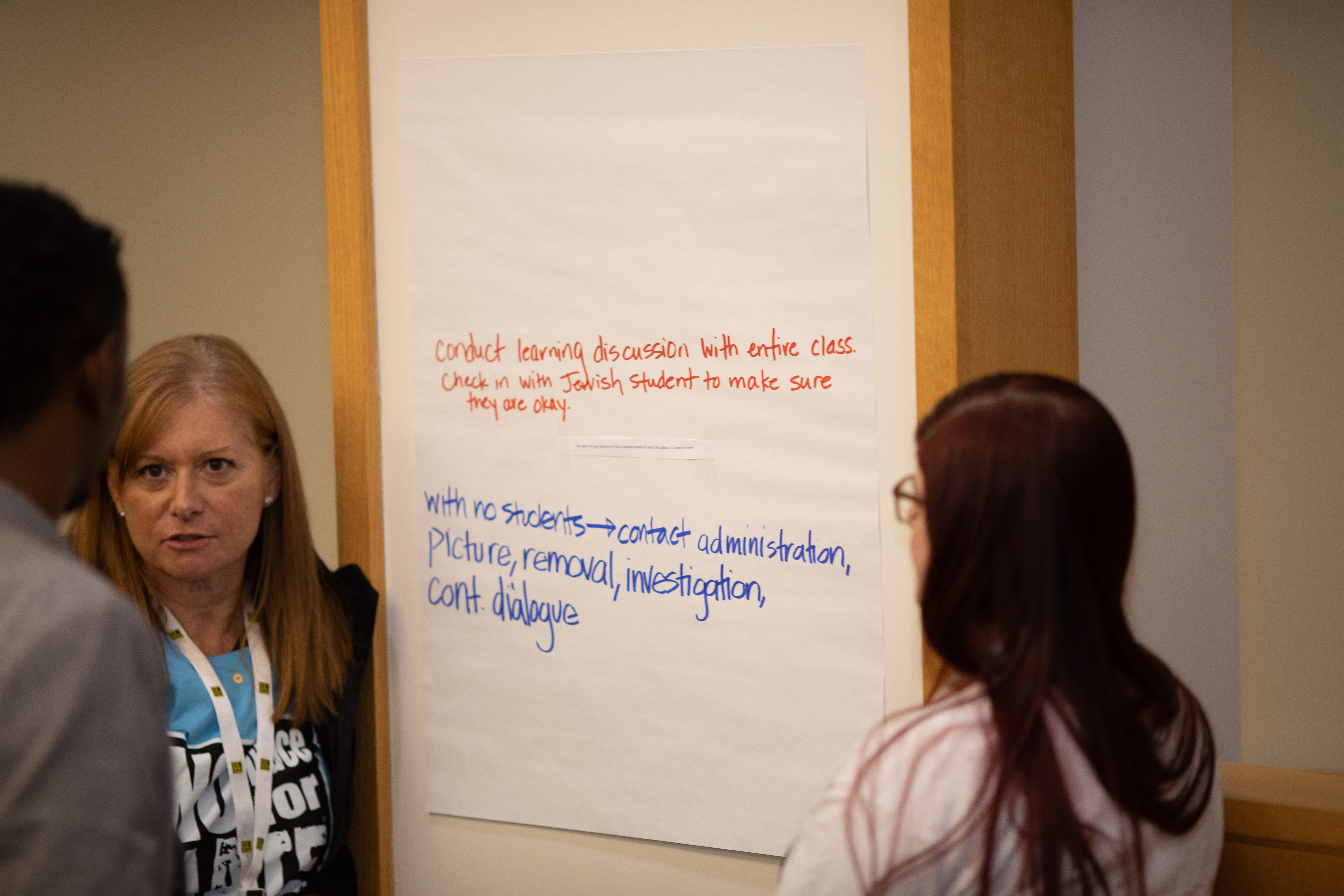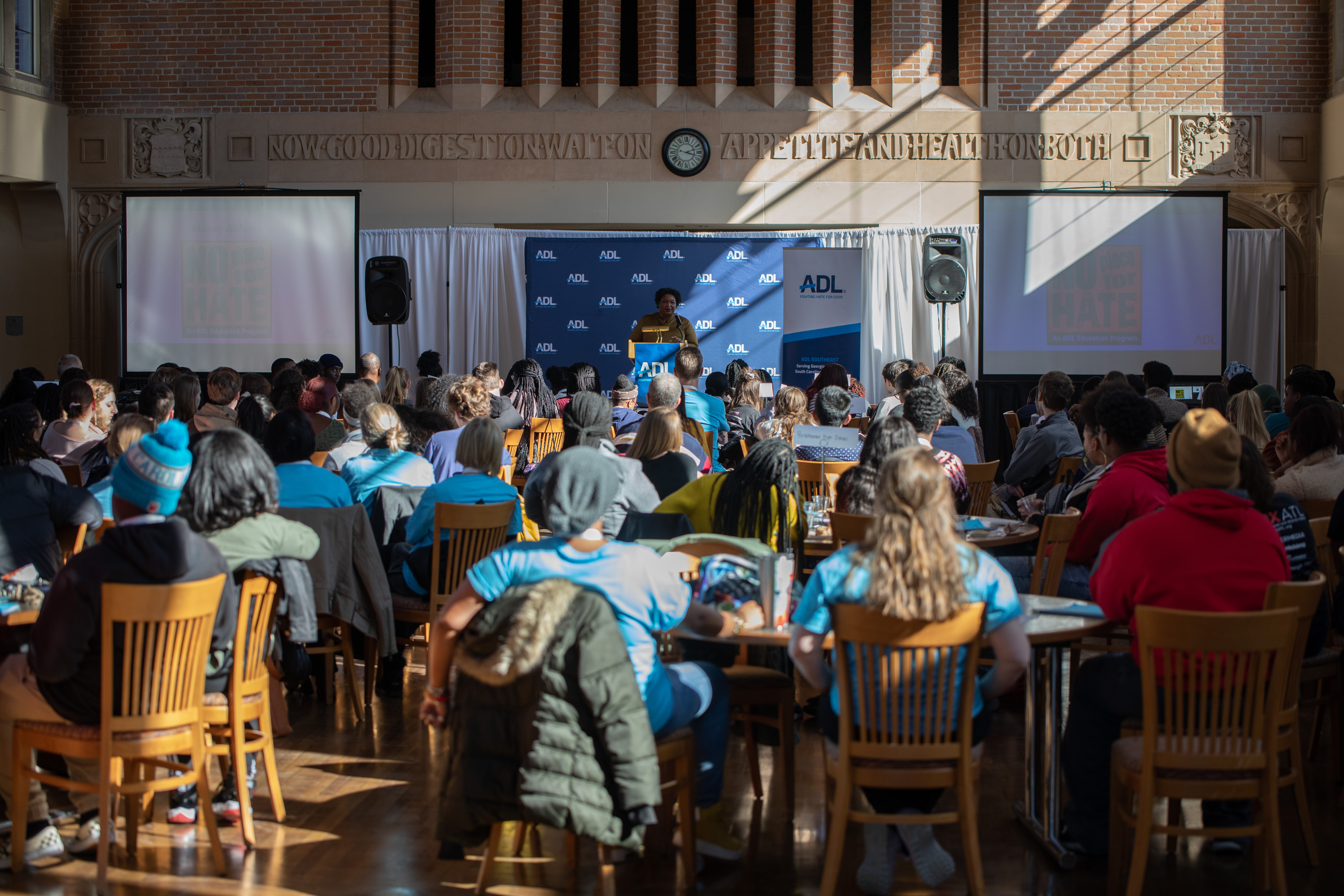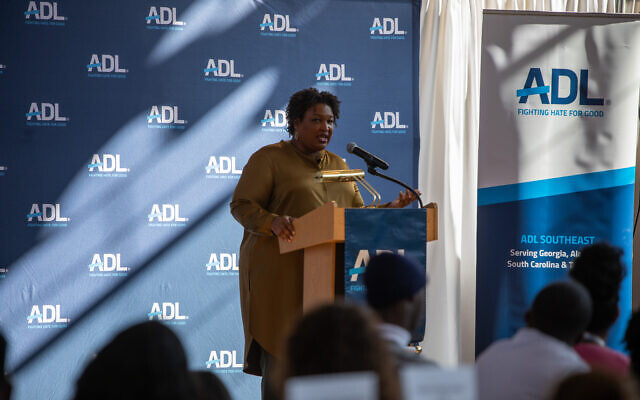No Place for Hate Summit Teaches Tolerance
ADL Southeast's 19th No Place for Hate Summit united students from throughout Atlanta to work together and hear from keynote speaker Stacey Abrams.
Honoring the legacy of the late Rev. Martin Luther King Jr., ADL Southeast hosted its 19th annual No Place for Hate Summit at Agnes Scott College on Monday for over 250 Atlanta-area high schoolers from both public and private schools.
The morning kicked off with a group activity that tackled how to recognize and work against bias. From there, students broke off into smaller groups, each led by an ADL volunteer, while teachers broke off into a group of their own led by David Hoffman, ADL Southeast associate regional director.
Among the topics covered were systemic bias and inequality and the ADL’s “Pyramid of Hate.”

“It isn’t a hierarchy of hate,” he said. “Rather hate at the higher levels can only happen if hate at the lower levels of the pyramid is tolerated. The way to stop hate from escalating is to stop it at those lower levels.”
Hoffman offered a handful of strategies for tackling situations that arise in classrooms, including pushing back, asking questions, interrupting and redirecting, and “ouch.” The latter is a keyword he recommended teaching students to use when they hear something that bothers them, that may clue in the speaker and others around them as to the situation.
Following discussions, the teachers broke up into smaller groups to tackle some scenarios posted around the room. One such question was, “A teacher comes to you with an idea of having students argue a pro and con side of slavery in the United States. How would you respond?”

Other scenarios touched on subjects such as bullying and discrimination. Each group wrote their response to the scenario on a large sheet of paper and then responded to previous groups’ ideas. The answers included common sense solutions, like speaking to students and administrators, as well as using some of the new strategies they’d learned that day.
Concluding the day was a keynote from Stacey Abrams, former 2018 gubernatorial candidate and minority speaker of the state legislature. She was met with raucous applause as she shared her own experiences with hate and how she was working to combat it.
She opened with a story about how she, as a high school valedictorian in Georgia, was invited to the governor’s mansion along with her peers from other schools.

“Everyone was driving up and we were the only ones walking,” she explained. “When we got to the guard at the gate, he took one look at me and said, ‘This is a private event. You don’t belong here.’ … I can see he’s telling himself a story about me, and I don’t know if it’s a story about the fact that I’m a young black woman who’s walking on the sidewalk or because he thinks only poor people ride the bus.”
Abrams recounts her humiliation on what should have been one of the most important days of her life, and although she was let in after her parents argued with the guard, the event sticks with her.
“I cannot remember meeting the governor of Georgia,” she said. “I don’t remember meeting my colleagues from around the state. … All I remember was this man standing in front of the most powerful place in the state and telling me I don’t belong.”
Turning to the present, she discussed the increasing rates of identity-related crimes, whether they be targeting black Americans, undocumented immigrants, or Jews, like those recently attacked in New York and New Jersey.
“I believe that we live in a nation where we are watching a resurgence of anti-Semitism go unchecked,” she emphasized. “It is not enough to say it is wrong. It’s about being willing to do something about it.”




comments